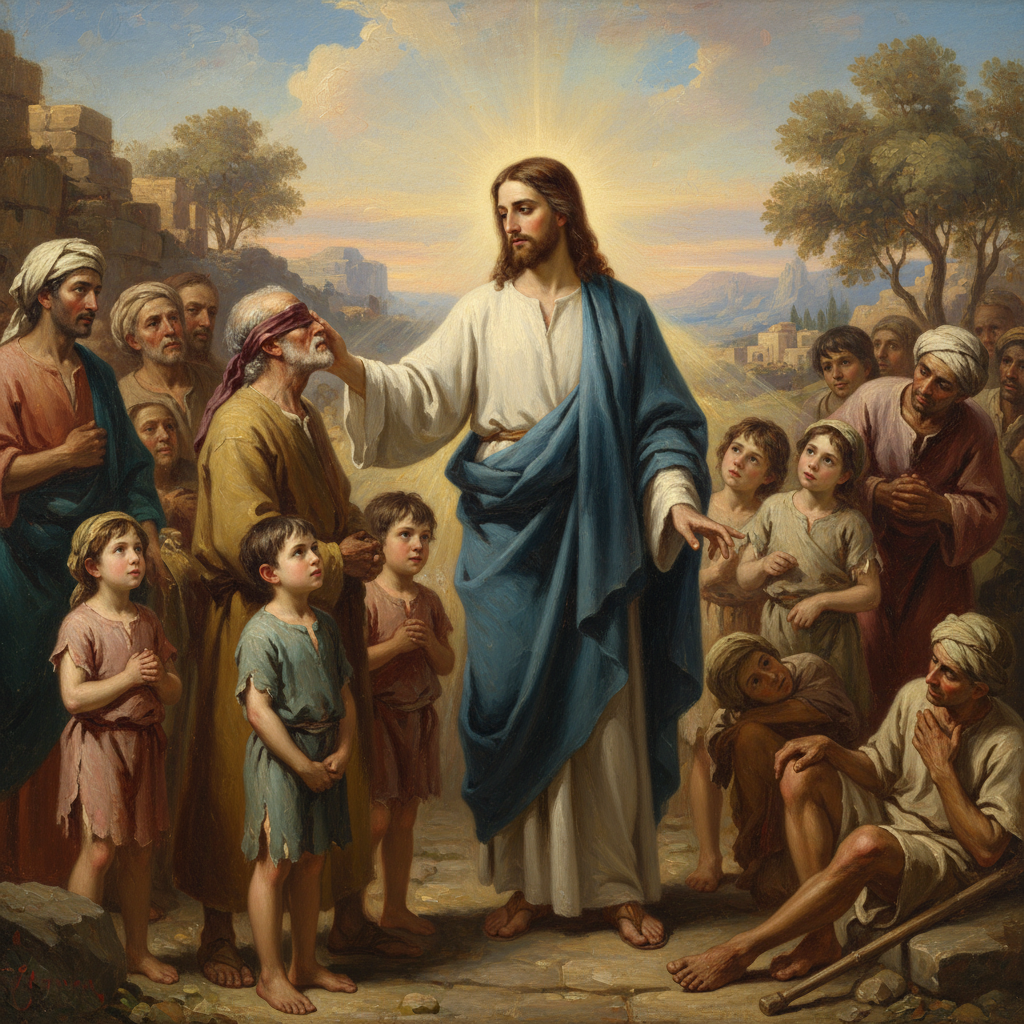 Jesus always drew crowds wherever he went. He always healed the sick, gave sight to the blind, helped the lame to walk, and gave water to the thirsty as well as feeding the hungry. Furthermore, no one taught the way Jesus taught. The People always marveled at that. All the Gospels affirm and record many of Jesus’ miracles of healing. John tells us that all the books in the world could not hold all the things that Jesus did for the people. After Matthew records many miracles in the first part of Chapter Eight, he takes time to explain that they were done not just to show compassion for people. He wanted the world to see that he cared for, and always showed compassion for the less fortunate of humanity. Also, there was a more pointed reason for them all. Matthew 8:17 tells us, “This was to fulfill what was spoken by the prophet Isaiah: He took our illnesses and bore our diseases.” The message of Jesus’ miracle was that He was the one prophesied in the Old Testament.
Jesus always drew crowds wherever he went. He always healed the sick, gave sight to the blind, helped the lame to walk, and gave water to the thirsty as well as feeding the hungry. Furthermore, no one taught the way Jesus taught. The People always marveled at that. All the Gospels affirm and record many of Jesus’ miracles of healing. John tells us that all the books in the world could not hold all the things that Jesus did for the people. After Matthew records many miracles in the first part of Chapter Eight, he takes time to explain that they were done not just to show compassion for people. He wanted the world to see that he cared for, and always showed compassion for the less fortunate of humanity. Also, there was a more pointed reason for them all. Matthew 8:17 tells us, “This was to fulfill what was spoken by the prophet Isaiah: He took our illnesses and bore our diseases.” The message of Jesus’ miracle was that He was the one prophesied in the Old Testament.
In other prophetic announcements concerning the healing that would come from the Messiah, it’s prophesied that he would touch what the current culture had classified in many ways as “non-people.” They were the blind, the lame, the lepers, the insane, the demonically possessed, etc. Jesus did just that. He would heal people of the wrong racial origins (such as the Gentile woman in Mark 7:24-30), or those who lived in the wrong kind of places (like the man in the Gentile graveyard in Mark 5:1-20), and others who by any definition were ritually impure (such as the woman with a permanent menstrual flow, Mark 5:25-34). We can’t help but notice the strong theological foundation of Jesus’ miracles of healing. All the stories of healing carry the same underlying theme of care and concern for the lost, outcast, and rejected of society. Jesus even said that he did not come for healthy people but only for the sick. He did not come to save the righteous people but only the sinners.
But Matthew, in a powerful testament to the prophetic fulfillment in Jesus’ healing miracles, makes it clear in his quote from Isaiah that the Messiah wouldn’t just heal us outcast sinners, he would actually “take our illnesses.” He would actually “bear our diseases.” You see, Isaiah, who foresaw the humiliation and sacrificial life and death of Jesus, said, “He is despised and rejected of men; a man of sorrows and acquainted with grief: He was despised, and we esteemed Him not. Surely, He hath borne our griefs and carried our sorrows: yet we did esteem Him stricken, smitten of God and afflicted. But He was wounded for our transgressions, He was bruised for our iniquities; the chastisement of our peace was upon Him, and with His stripes we are healed. . . . The Lord hath laid on Him the iniquity of us all.”